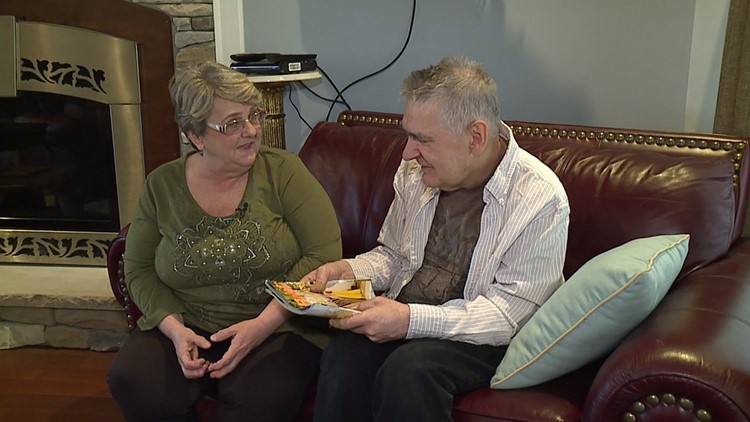TAMAQUA -- You've more than likely heard of foster care when people take in babies or children who are in need of a safe place to stay.
That's the concept of life sharing; only it's adults with intellectual disabilities.
An organization in Schuylkill County is looking for a few good families to share their homes.
Adrienne Vasiliou of Summit Hill knows just what Jimmy likes. Their relationship is obviously a special one: sort of friends, sort of mother/son, lots of love.
Adrienne, who had met Jimmy briefly when he needed an emergency place to stay, was asked to consider taking him in for good.
"I says I'll give it a try. Give me a month and if I don't like it I'll bring him back. That was 4 and a half years ago!" Adrienne said.
Jimmy and Adrienne are part of a program called CARES -- Community And Residential Empowerment Services -- providing help to adults with intellectual disabilities.
In Schuylkill County, CEO Sheila Davison says they're currently looking for more families for its Lifesharing program, an alternative to an institution or group home.
"A family could be somebody who is single, a married couple, a family with children. We find someone willing to let someone move in and be part of their family," Davison explained.
Sarah Wentz of Tamaqua is a CARES coordinator. She's also married with two young daughters. It's a busy family and Barb fits right in.
"Everybody gets home at the same time, we have dinner together, we like to go shopping, go out to eat, we love to go to the casino together," said Wentz.
CARES works by getting referrals from the county. Interested families go through a screening and then a matching process.
After they move in, CARES picks up participants in the mornings for day programs, so family members can continue to work, or take care of children.
Jimmy, for instance, cleans an area church and works at an animal shelter.
And Marie, who loves her day program, learned to crochet and made a flower in her hair.
These families urge others to think about sharing their lives.
"It seems like it could be something scary like there's this stranger coming to live in your home and you don't know what they'll do. But it's not. Once she was there two, three days, she was part of the family," Wentz added.
"I feel like this is my place, my home," Barb said.
Families who take someone in receive a tax-free stipend to help offset costs.
And according to Sheila Davison, for every match made, taxpayers benefit too. She says the cost to keep someone in a group home or institution is far more expensive for a government agency than a Lifesharing program.



